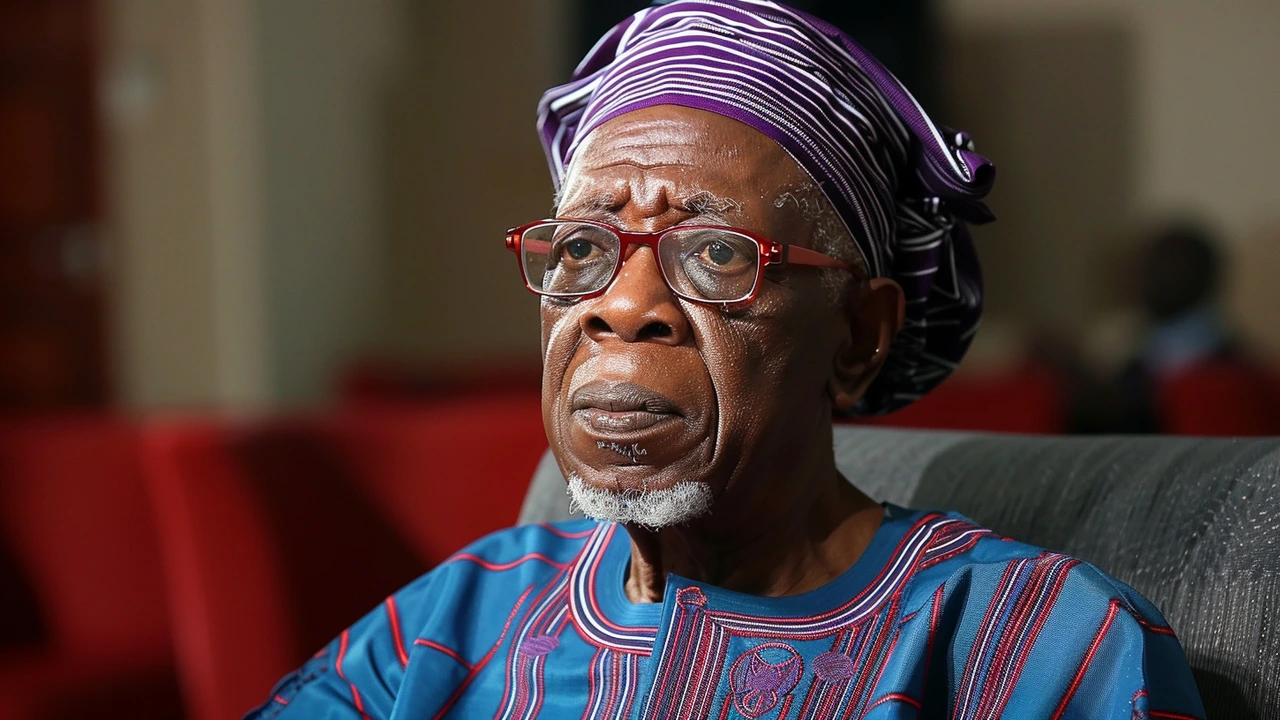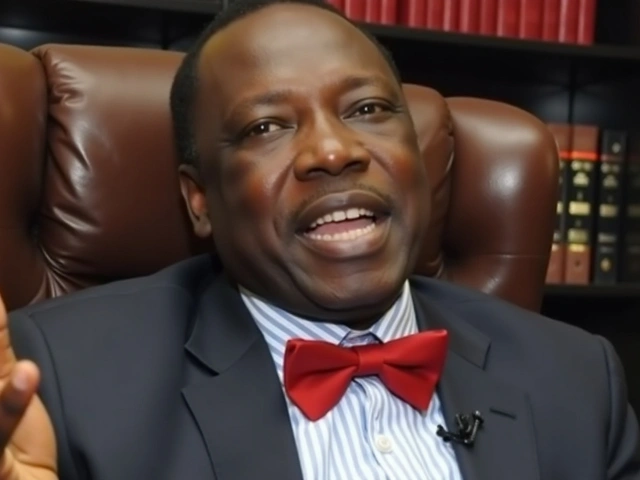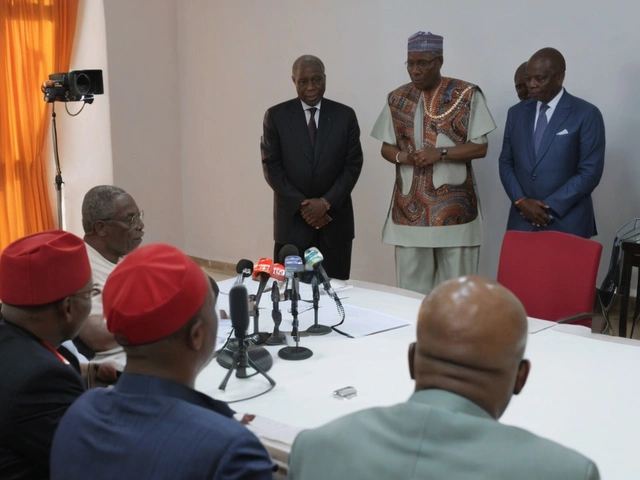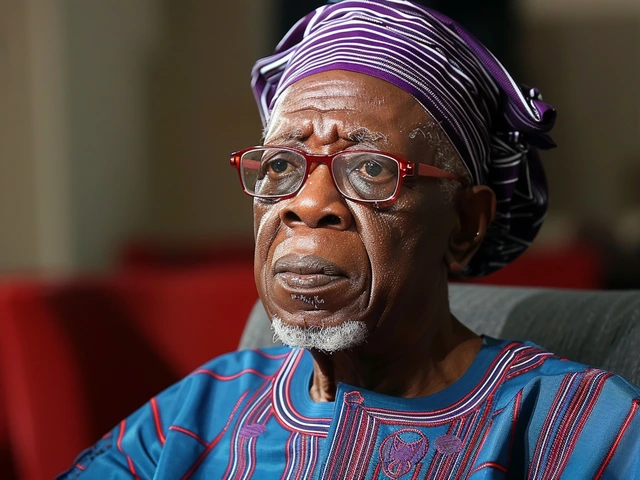An Intensive Critique of Tinubu’s First Year in Office
Eze Onyekpere, the Lead Director of the Centre for Social Justice, recently labeled President Bola Ahmed Tinubu’s first year in office as unsuccessful on a highly publicized appearance on Channels Television. As Nigeria grapples with economic instability, Onyekpere has unreservedly criticized Tinubu's key economic policies, emphasizing their role in exacerbating the nation's hardships.
Key Economic Policies Under Scrutiny
One of the central points of contention is the abolition of the fuel subsidy, a move intended to alleviate financial strain on the national budget. While economic rationales existed, the sudden execution of this policy translated to immediate inconveniences for the average Nigerian. Overnight, prices for transportation and goods soared, largely impacting the lower-income populace. Coupled with this, the harmonization of the naira further complicated the economic landscape.
The naira harmonization, intended to streamline the country's complex currency system, yielded adverse outcomes. As the currency value adjusted, inflation took a robust swing. In no time, basic food items and everyday needs saw staggering price hikes. Onyekpere emphasized that food inflation climbed to an unbelievable 40.53 percent, while overall inflation reached 33.69 percent. This scenario painted a bleak picture for Nigerian citizens struggling to afford basic necessities.
Impacts on Everyday Life
The ramifications of these policies permeated all levels of society. From urban to rural areas, life became increasingly challenging. Public transportation costs surged, which affected not just those commuting to work, but also small business owners relying on affordable logistics. The average Nigerian's disposable income saw a substantial decline, rendering what used to be basic expenses into concerning financial burdens. Grocery bills ballooned to figures once unthinkable, forcing many families to make drastic compromises on their daily nutrition.
Beyond personal hardships, larger businesses and industries also felt the chill. Operational costs increased across sectors, from manufacturing to service delivery. This led inevitably to a ripple effect—companies raised prices, laid off staff, or even closed down due to unsustainable running costs. The domino effect subsequently strained the job market, pushing unemployment rates higher.
Calls for Administrative Changes
Onyekpere's commentary did not merely focus on highlighting these difficulties. He proposed actionable steps for rectifying the situation. Particularly, he urged President Tinubu to significantly restrategize his team by relieving non-performing ministers of their duties. By ushering in capable leadership and knowledgeable advisors, Onyekpere argued, better strategies could be implemented to steer the economy in the right direction.
These calls are echoed by financial experts and academicians across the country. Agreement resonates broadly that while the intentions behind policies like fuel subsidy removal and naira harmonization might have been well-founded, their execution and timing were gravely miscalculated. A more phased approach, coupled with robust safety nets for the vulnerable, could have prevented this economic tumult.
Expert Opinions on the Path Forward
The consensus among experts is that immediate measures need to be taken. Policy recalibration should focus on mitigating inflationary pressures through targeted interventions. According to economists, ensuring a stable supply of essential commodities by subsidizing production costs might offer temporary relief. Likewise, improving market efficiencies and reducing bureaucratic impediments can foster a more favorable economic environment.
Further, fostering investment in sustainable agricultural practices is touted as a necessity for long-term food security. Increasing domestic production capacity, alongside effective distribution networks, could buffer the economy against future shocks. Empowering local farmers with financial aid and technical assistance can be a game-changer.
Citizen Feedback and Government Response
Public opinion has been mixed but largely critical of the current administration's policies. Many Nigerians have taken to social media and other platforms to voice their grievances. The widespread sentiment underscores a demand for more empathetic governance—one that considers the practical repercussions on everyday lives.
In response, various government representatives have insisted on the need for patience, arguing that these policies are foundational for a more stable economic future. Long-term gains, they assert, require short-term sacrifices. However, as public discontent grows, balancing immediate relief with future benefits remains a daunting task for the Tinubu administration.
Looking Ahead
As the administration heads into its second year, all eyes will be on how it addresses these criticisms. Will there be meaningful policy adjustments? Will the leadership demonstrate the political will to enact necessary changes? These questions remain pivotal as Nigeria watches closely, hoping for a turn towards economic stability and improved living conditions.
Concluding Thoughts
President Tinubu's first year has undoubtedly been a period of considerable challenge and scrutiny. While some of the policies implemented had promising intents, their execution left much to be desired. The Nigerian populace is yearning for effective measures that translate to real-life improvement. Stringent review and agile adaptation of policies may well be the needed steps to achieve a balanced and prosperous future.





